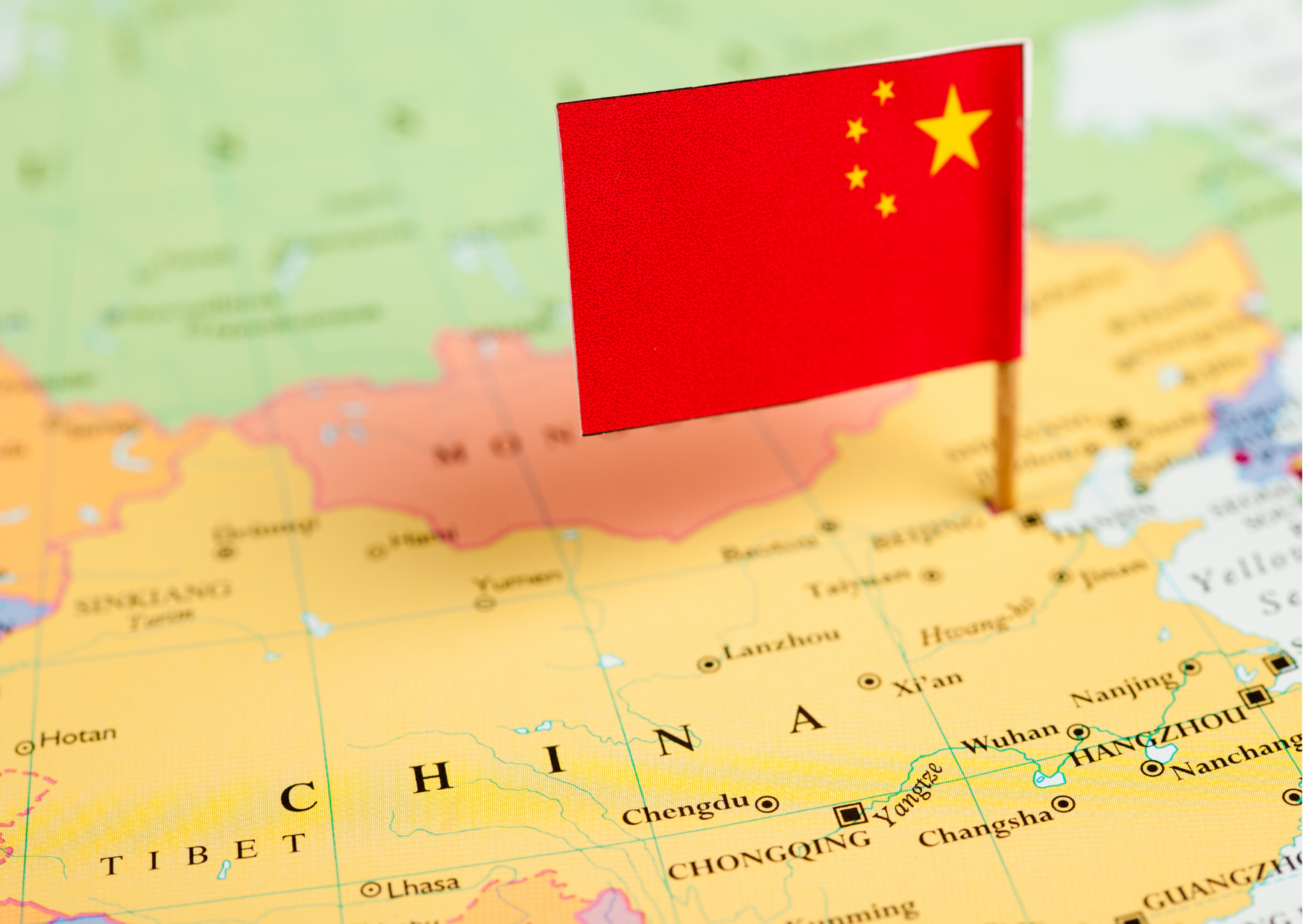Beijing’s position on the war in Ukraine:

Beijing responded to the war in Ukraine by calling for a peaceful resolution of the conflict, blaming Washington and celebrating its alliance with the Kremlin. China’s position, however, is more complex and is a result of various political, economic and internal factors that the Chinese authorities must take into account. Among the key ones is social stability necessary to maintain the power of the Communist Party, stable growth and Beijing’s interests both in the Indo-Pacific and on the global scale. The whole matter is complicated by a strategic competition with the United States and the economic partnership with the European Union which is not that smooth as it used to be a decade ago.
THE INTERNAL CONTEXT: SOCIAL STABILITY AND GROWTH
The 20th Congress of the Chinese Communist Party (CCP) is set to convene in the fall of 2022 and bring a new generation of leaders. What is crucial, however, that will be the time when the second term of Xi Jinping as the CCP leader comes to an end. Tradition established in the last thirty years has it that a new leader should assume power. Most likely, however, Xi will retain his post, thus attaining a position comparable only to that of Deng Xiao-ping. Stabilization is therefore vital more than ever in the face of an economic slowdown, in part an effect of the pandemic and the zero-Covid policy.
Government’s strong response to the coronavirus pandemic and in particular the lockdown of such business hubs as Shanghai carries social and economic costs. Chinese authorities are not in mood to adjust their foreign policy course, as in such a tough time what counts is continuation and showing to the public that the government is not yielding to the pressure from the West, especially from Washington. Anti-Western sentiments, traditionally present in the Chinese society, are also fueled by the official media narrative. It is difficult to assess to what extent pro-Russian and anti-Western publications and posts in social media are the result of official propaganda or they reflect real moods. There is no credible research to verify this. Polls carried out by official news portals (eg huangiu.com, April 12, 2022) indicate that 90% of the surveyed Internet users believe that “the US is not on the side of justice and equity about Ukraine, but instead practices hegemony and intimidation.” It is worth noting, however, that there are also opinions inconsistent with the official Party line – mainly expressed by some intellectuals and artists. However, they are quickly removed from social networks.
SINO-RUSSIAN ALLIANCE
Just before the opening of the Winter Olympics in Beijing on February 4, the leaders of China and Russia issued a joint declaration announcing that the “friendship between the two countries had no limits and there were no “forbidden” areas of cooperation. After Russia’s invasion of Ukraine began, Chinese media repeated Moscow’s official propaganda narrative that there was no war in Ukraine but that Moscow was carrying out a “special military operation” there. However, Beijing has emphasized its respect for “the sovereignty and territorial integrity of all countries“. Chinese Ministry of Foreign Affairs also stressed that it “understands Russia’s legitimate security concerns.” Authorities in Beijing have put blame on the United States for the Russia-Ukraine conflict claiming that Washington “sent arms to Ukraine, exacerbated tensions and even increased the likelihood of war.” China also joined the Kremlin propaganda accusing America of running “biological weapons labs” in Ukraine. On the other hand, on March 2, 2022, the New York Times published an article claiming that “senior Chinese officials had demanded from Russia not to start the invasion of Ukraine before the Winter Olympics end.” That would mean Beijing had some knowledge of the coming war. The Chinese authorities, however, strongly denied those claims.
China abstained from voting in the UN Security Council and the General Assembly on draft resolutions condemning Russian aggression. However, on April 7, 2022, the Chinese representative voted against Russia’s suspension from the UN Human Rights Council in connection with the Bucha massacre in Ukraine. Since the beginning of the Russian invasion of Ukraine, President Xi Jinping has spoken to Vladimir Putin several times by phone, and the Chinese media commented on the talks as an expression of trust between both sides as well as “China’s responsibility as a superpower” that “is actively working towards a peaceful solution to the conflict through negotiations”. It is, however, new for the Chinese foreign policy and for the statements of President Xi Jinping himself that he called for “the achievement of a balanced, effective and sustainable security mechanism in Europe”. Before the conflict in Ukraine escalated, both Chinese diplomacy and, even more so, Chinese leaders avoided statements that could be interpreted as interfering with European security issues. However, the brutality of the hostilities in Ukraine led to a certain modification. On March 8, during a virtual summit of the leaders of China, France and Germany, Xi Jinping used the term “war” for the first time in relation to the conflict in Ukraine. The crimes committed against civilians in Bucha and Kramatorsk were also condemned by Beijing, but the Chinese authorities decided not to blame either side. Thus, neither the intensification of the war nor the sanctions imposed by the West on Russia weakened – at least in the political sphere – the Sino-Russian alliance. It was visible on March 30. during a meeting of the foreign ministers of Russia – Sergey Lavrov and China – Wang Yi in Tunxi in the eastern province of China – Anhui. Wang Yi expressed his view that “Sino-Russian relations have passed the test in the changing international situation”, and that “both countries are even more determined to develop bilateral relations and that China wants to raise them to a higher level”.
Xi Jinping has yet to talk with President of Ukraine, Volodymir Zelensky, but the foreign ministers of both countries, Wang Yi and Dmytro Kuleba, spoke twice. The issue that the Ukrainian authorities raise in their conversations with Beijing is the effects of the war on the future of the Belt and Road Initiative (BRI), especially what regards the China-Europe rail connection, but also on investments in that country. Some Chinese experts share these concerns. Kyiv is also trying to ensure that the permanent members of the UN Security Council, including China, are the guarantors of a future peace deal with Russia and Ukraine’s security. However, in Beijing’s view, any “security guarantees have clear content restrictions.” It therefore seems doubtful that China will agree to Ukraine’s suggestions. Chinese diplomacy, on the other hand, calls for a ceasefire in order to create a “green access” necessary for Kiev to export its grain overseas. That country and Russia are the main grain suppliers, among others, to the countries of the Middle East and Africa.
STRATEGIC COMPETITION WITH THE WEST
China has used the international crisis caused by the war in Ukraine to propose a “Global Security Initiative”. It was announced by Xi Jinping on April 21, 2022 at the annual Boao Forum for Asia. His proposal is based on the “principle of indivisible security”, respect for the sovereignty and territorial integrity of other states, non-interference in their internal affairs and respect for their socio-political systems. The initiative, while referring to the traditional position represented by the Chinese diplomacy, also refers to the Russian position (“indivisible security”). It may also be read as an indication that Beijing would react to a possible wider US involvement on the side of Taiwan. A few days earlier, on May 14, a high-ranking delegation of the US Congress visited Taipei. It was chaired by Senator Lindsey Graham, a senior member of the US Senate Budget Committee, and also included Robert Menendez, chairman of the US Senate Foreign Affairs Committee. The visit was aimed at “demonstrating the high regard and firm support US lawmakers from both parties have for Taiwan” in connection with fears caused by Russia’s invasion of Ukraine. On the other hand, since the beginning of the war in Ukraine, the Chinese government has repeatedly emphasized that these two issues cannot be compared: Ukraine and Taiwan, because, according to Beijing, “Taiwan has always been an inalienable part of Chinese territory.” However, the course of war in Ukraine – contrary to the initial predictions of the Kremlin, but also of other countries, including the US – is a kind of lesson for Beijing demonstrating how the defense of Taiwan might look like. The Taiwanese authorities themselves are convinced that this currently means relative security for Taipei.
Undoubtedly, China’s position on the war in Ukraine results to a large extent from its relations with the United States. Since 2017, China has been described by Washington as a “strategic competitor using predatory economy to intimidate its neighbors and to militarize parts of the South China Sea.” [1] Tensions between the two powers deepened under Donald Trump’s presidency, taking the form of a trade war. President Joe Biden has not changed the US policy towards China, and their competition is becoming a key factor defining politics and economy on a global scale. This is the background that influences Chinese reactions to the Russian invasion of Ukraine. US diplomatic efforts to modify the Chinese position, including talks between President Joe Biden and President Xi Jinping, have not brought tangible results. Meanwhile, some US officials suggested that the Kremlin turned to Beijing for assistance in the supply of military equipment, which both sides denied. Nevertheless, during Biden’s talks with Xi on March 18, 2022, the US president warned the Chinese leader of the “implications and consequences” of possible China’s military support for Russia.
NATO has also been alarmed about China’s stance on the war in Ukraine and Beijing’s relationship with Moscow. NATO’s Secretary General Jens Stoltenberg described it as a “systematic challenge” to the security of NATO countries. Stoltenberg further stated that the North Atlantic Alliance “must take into account China’s growing influence and coercive policies on the world stage.”
On December 30, 2020, China and the European Union completed negotiations on the EU-China Comprehensive Agreement on Investment (CAI), which was to be the most ambitious agreement that China has ever concluded with a third country. However, political factors, including mutual sanctions related to the dispute over Chinese policy towards the Uyghur ethnic minority in Xinjiang province led to the suspension of CAI in May 2021. Sanctions imposed by Beijing on Lithuania, a member state of the European Union additionally ignited the situation. China ‘punished’ Vilnius for allowing the opening of Taiwan’s representative office in Lithuania. As a result, in January 2022, Brussels launched a case against the People’s Republic of China with the World Trade Organization (WTO) “for its discriminatory trade practices against Lithuania“. After Russia’s invasion of Ukraine, both sides also differ as regards their respective positions on the war in that country. The European Union-China summit did not change the situation, and during a videoconference on April 1, 2022, President Xi Jinping called on European leaders to adopt an “independent” policy towards China. The following visit of Huo Yuzhen – a special representative of the Chinese government to eight countries of Central and Eastern Europe, including Poland has not also brought anything new. The visit was made on the occasion of the 10th anniversary of the 17 + 1 Cooperation Mechanism and was aimed, among others, at “clarifying misunderstandings regarding the Chinese position on Ukrainian crisis”.
BEIJING’S ECONOMIC RESPONSE
In terms of economic activities, the Chinese customs administration eased restrictions on the import of Russian wheat on the eve of Russian aggression against Ukraine, allowing the import of that grain from all regions of the country. While China has condemned the West’s “unilateral sanctions” on Russia, the actual conduct of individual state-owned and private companies is pragmatic. China seems to be using Russia’s problems to pursue its own interests. Beijing uses the partial exclusion of Russian banks from the Swift system to promote trade settlements, including trade in hydrocarbons in its own currency. The effects of the war, however – the global increase in food prices and the fight against the Covid-19 pandemic have weakened the yuan, despite its greater internationalization.
After Russia’s invasion of Ukraine began, two major state-owned banks, ICBC and Bank of China, stopped financing the purchase of goods from Russia due to US sanctions on Moscow. Despite this, the Chinese authorities have assured that they would continue “normal trade” with Moscow. The Russian and Chinese media suggested that the restrictions related to the cut-off from the Swift system could be relaxed through the use of the Chinese CIPS system. Beijing has not officially commented on that possibility. Some Chinese companies, such as DIDI (the Chinese equivalent of Uber), reacted to the sanctions imposed on Russia by withdrawing from the country, but then were forced to return under the pressure of the state or public opinion, including social media. Furthermore, such telecommunications companies as Huawei, Xiaomi and Oppo have reduced by 50% export of their products to Russia. Meanwhile, the China-founded Asian Infrastructure Investment Bank – AIIB suspended operations related to Russia and Belarus. New Development Bank, founded by the BRICS countries, which also includes China and Russia, followed the suit. In mid-April, UnionPay, the Chinese state-owned payment system, refused to cooperate in issuing payment cards with Sberbank and other Russian banks subject to US and European sanctions. Similarly, the drone manufacturer DJI Technology Co has suspended its operations in Russia and Ukraine.
Beijing sees the crisis caused by the Russian invasion of Ukraine also as an opportunity for Chinese companies, especially in terms of investments in the energy sector, but also in food exports – in those sectors where Western companies are withdrawing. Chinese refineries owned by non-state companies have been placing new orders for crude oil in Russia without interruption, while at the same time receiving discount prices. Nevertheless, it is not that easy to draw a real picture of the trade between the two countries. According to the Chinese customs office, exports of Chinese goods to Russia in March 2022 decreased by 7.7 percent compared to the previous year, while the import of Russian crude oil and coal decreased by 14.4 percent and 30.7 percent respectively. Meanwhile, according to the data provided on May 16, 2022 by Gina Raimondo – the US Secretary of Trade – exports of laptops from China to Russia also fell by as much as 40% in March. The trade in other products subject to sanctions has also decreased. The United States also “does not see China’s systematic efforts to go around the US export controls.” Therefore, contrary to Moscow’s expectations, Beijing generally complies with the sanctions imposed on Russia by Washington and Brussels.
[1] 2018 Defence Strategy of the United States of America, US Department of Defense.
Author: Dr. Bruno Surdel, expert at the Centre for International Relations Foundation (CIR)
[evc_interactive_banner type=”classic” custom_link=”url:https%3A%2F%2Fmastersandrobots.tech%2F|||”]




